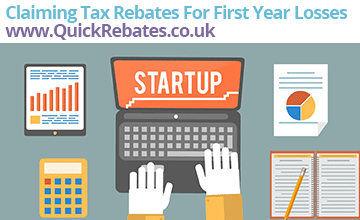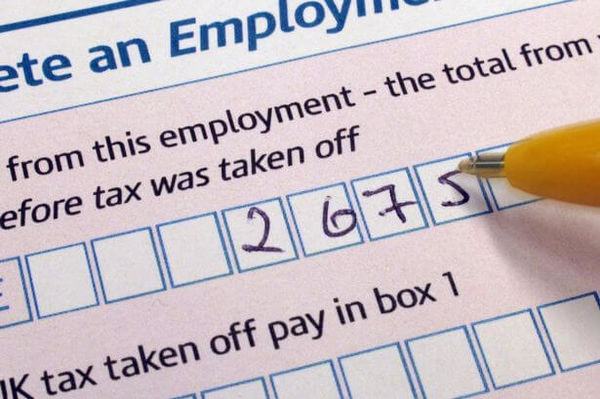P800 - Tax Calculation Explained
Your P800 form will highlight various aspects that influence your Tax payable or repayable over the course of the Tax year. The P800 is broken down into the following areas:
- Income – this would typically be earnings received from employers
- Deductions – this would be Tax deductible expenses or allowances, for example, Flat Rate expenses for certain jobs, or mileage if you been working at a temporary workplace.
- Allowances – commonly this would simply be your annual personal Tax free allowance. For the current Tax year (2018-19), this is £11,850.
- Adjustments – these would be manual adjustments created by HMRC, but would commonly include overpayments or underpayments from previous years
- Result – this is the final result of your P800 computation and this will be your Tax rebate or liability
When Might You Receive a P800?
You will common receive your P800 between August and October following the appropriate Tax year. This might be different if you are self employed and have nominated a different structure for your Tax year.
The P800 will be a physical letter never an email so be careful of official looking email scams that bear the HMRC logo.
If you have opted to receive emails from HMRC then you may be directed to a genuine link on the government website. We would advise that you contact us if you are unsure.
Checking Your P800 Calculation
Just because the P800 has been issued by HMRC, this doesn’t mean that they have used the correct information. The income, deductions, allowances and adjustments could be be incorrect. This means that if you are shown to have a Tax liability you could actually be due a Tax refund, and vice versa.
We would highly recommend you check your P60 details and expenses against our Tax refund calculator. It is quite common for HMRC to be unaware of additional allowances or expenses that you have incurred. For example, they would not know how much mileage you have suffered in the year, and therefore they cannot take this into consideration. The same also applies for other areas of expenditure.
How Does the P800 Work?
In short, when HMRC review Taxes for the year they will send out P800 letters to anyone whose Taxes don’t add up correctly. This can either mean the person having to pay more in Tax to make up for the difference (this can be taken as a small monthly payment as opposed to a lump sum) or it can mean the person being owed a refund. This is obviously much better news for the person involved.
Your P800 letter will show HMRC’s calculation of your Tax. Before you get excited – or worried, if it says you owe Tax – be sure to double check your figures against your payslips, P60s or P45s. There’s a possibility the error is at HMRC’s end and your Tax has been correctly paid.
Your P800 could be incorrect, check your figures against our Tax rebate calculator, you could be due more Tax back.
Claiming Back Your Money
You can reclaim any overpaid Tax back directly from HMRC and you should receive this as a lump sum straight to your bank account in a matter of weeks. As this is a Tax rebate you will get the full amount and will not owe any Tax on your this income.
Alternatively – if you would rather HMRC did not have your bank account details – you can opt to receive your payment via cheque. This option is automatic if no electronic rebate claim is made. HMRC will automatically send you a check after 45 days of no action being taken after the submission of the P800 form.
My P800 is Wrong - What Do I Do?
If you believe your P800 form is incorrect, we would suggest you compare the figures to our Tax return calculator which will computer your Tax refund or Tax liability. While you can contact them via letter, it is advisable to phone them to resolve the issue as soon as possible. The phone staff can make a note on your record much more quickly and can help prevent any penalties being applied to your Tax code.
On that same note, if you have been offered a refund that you are not owed, you will need to contact HMRC.
It may be possible that you are required to complete a Tax return to override the P800 calculation. The Tax return would be an opportunity to claim all expenditure and Tax reliefs you could be entitled to.
I Have Received More Than One P800. What Do I Do?
It is common for HMRC to get themselves mixed up with calculations and you might receive multiple P800s, perhaps for the same year or even different Tax years. We would recommend that you check each calculation against our Tax rebate calculator.
Alternatively you can speak with one of our advisors on 0191 3553553, or email us on info@quickrebates.co.uk for more advice and information.
Contact QuickRebates today and have experts review your P800. You could be due even more back for unclaimed expenses and Tax reliefs.
Is My P800 Real?
Scam letters have been known to be delivered to people and can be very convincing. You should first look for the obvious signs of an HMRC letter such as the brown envelope, the return address and the official HMRC logo.
The most important step to take to prevent fraud though, is to call HMRC and ask them about the letter. Be sure to use their official phone number (see here for a list of HMRC numbers) and not the one in the letter in case a scammer is waiting by their own phone.
Why Could My Tax Be Wrong?
There can be numerous reasons for this. Human error if you are self employed, an error in your employer’s payroll department, under-claimed expenses or Tax reliefs or even an error at HMRC. A common cause of P800s being sent out is people being placed on the wrong Tax code for their income. This can lead to you being on “emergency tax” and being grossly overcharged for your income.
Be sure to double check your annual Tax code against your expected income and you should have a good idea whether or not you will be owed money in the form of a Tax rebate. Be sure to take into account any earnings you make on the side from your primary employment, such as freelance work, online business income, or investment income as examples.

17 Actionable Tips for New Business Startups
17 Top Tips for New Businesses (Physical and Digital) Starting any business be it physical or digital, can be extremely[...]

Tax Relief for Opening Year Losses
Opening Year Loss Relief When starting a new business, it is incredibly common for Tax losses to arise in the[...]

Tax Refunds for Musicians
Musicians – It’s Time to Claim Back Your Tax! As a musician starting up in business, you could be entitled[...]








